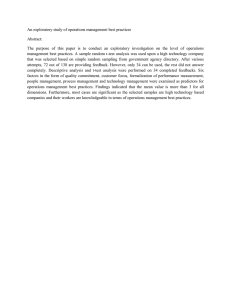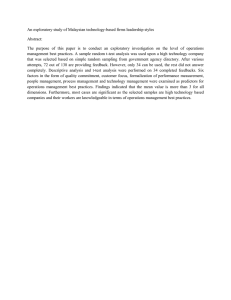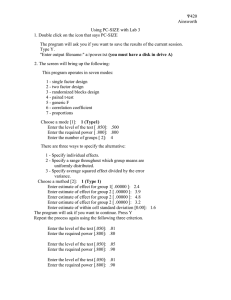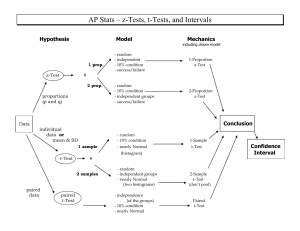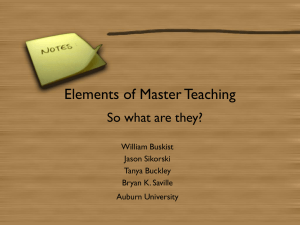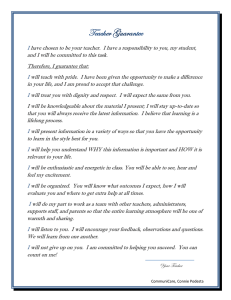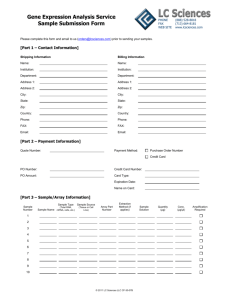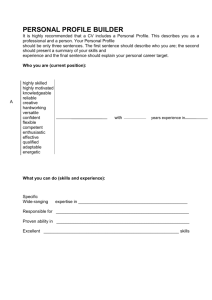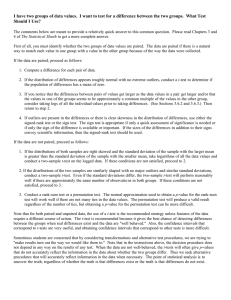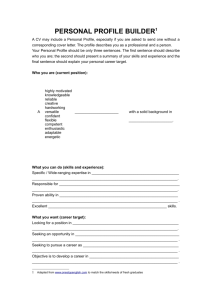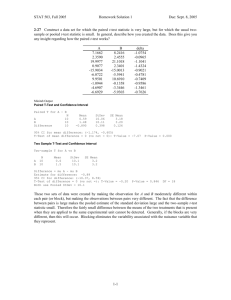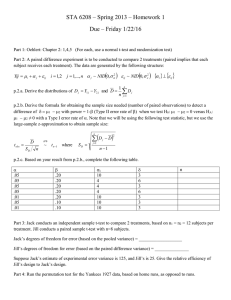The effective teacher`s characteristics as perceived by students
advertisement
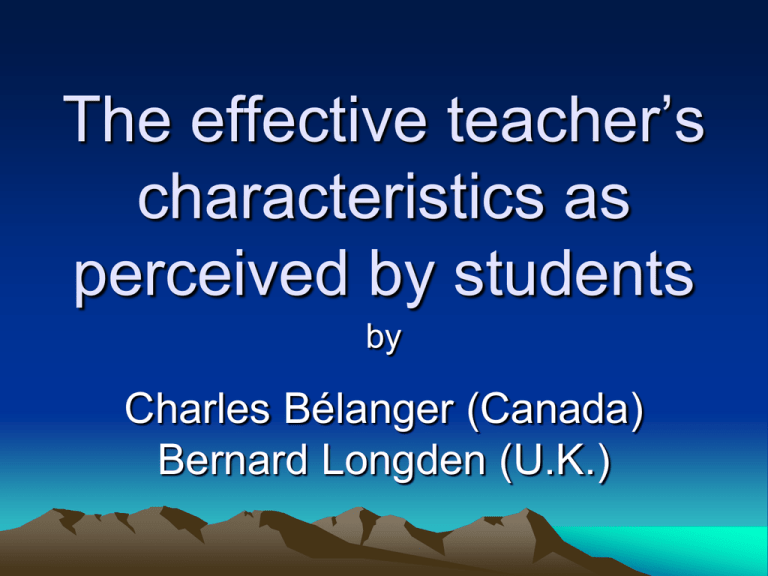
The effective teacher’s characteristics as perceived by students by Charles Bélanger (Canada) Bernard Longden (U.K.) How will we do this? The plan A few questions • What are the ingredients used to define a teacher’s effectiveness? • Why are some teachers more effective at engaging the attention of students? • Is there a gap between students’ expectations and actual delivery of teaching? Studies find that society expects… • • • • • • • • Think critically Solve complex problems Act in a principled manner Be dependable Read, write, and speak effectively Have respect for others Adapt to change Engage in life-long learning Main purposes of study 1. Find out most desired attributes to effectively communicate knowledge and skills…as perceived by European students 2. Measure the gap between expectations and experiences Various descriptions of effectiveness • • • • • • • Facilitating student educational objectives Enthusiastic, charismatic, expressive Strong communications skills Comfortable learning atmosphere Fostering student motivation Showing care for students’ learning Good course organisation Training on how to study • “Only 14% of students say they had been formally taught how to study, in high school or in college” Two teaching frameworks • Teacher-focused: content –oriented and correct information • Student-focused: learning-oriented and conceptual change • Significant differences between what teachers and students think as important Attention is drifting after 10-20 minutes INVOLVEMENT • “Strong relationship between students’ active involvement and effective learning” • “Between 70% and 90% of professors use the traditional lecture as their primary instructional strategy” • “Only 17% of faculty use essay tests as opposed to recall answers” Methodology • Development of a test instrument Personality characteristics-bipolar Classroom environment-Likert Teaching style-Likert • Expected and experienced templates • Secure website • Use of EAIR members Responses • • • • • • • • 1883 responses 10 European countries 53% females, 47% males 82% undergraduates 87% in science and professions 78% ≤ 25 years of age 16% from groups >100 students 18% from groups >50 and <100 Data treatment • Factor analysis Reduce the number of variables Cluster the interdependent variables • Analysis of variance Verify effects of other elements (program level and type, gender) • Paired t-test Check differences between expected and experienced Personality Characteristics (Scale: 7.0) Characteristics • Inspiring • Open-minded • Approachable • Enthusiastic • …………. • Rational • Confident • Assertive Expected 6.44 6.09 6.26 5.94 …… 6.02 6.00 5.43 Experienced 3.97 4.29 4.53 4.25 …… 4.96 4.98 4.56 Difference 35% 26% 25% 24% …… 15% 15% 12% Mean 5.82 4.41 20% Classroom Characteristics (Scale: 5.0) Characteristics • Enjoy Teaching • Learning Env. • Clear requirem. • Concerned • ………. • Control discuss. • Knowledgeable Expected 4.38 4.66 4.39 4.06 …… 4.00 4.27 Experienced 3.08 3.42 3.17 2.96 …… 3.31 3.68 Difference 26% 25% 24% 22% …… 14% 12% Mean 4.30 3.28 20% Teaching Styles & Skills (Scale: 5.0) Characteristics • Explains clearly • Interesting presentation • Adapts to needs • Generates interest • …………. • Class level teaching • Ends class on time Expected 4.67 4.39 4.19 4.38 …… 3.94 3.40 Experienced 3.29 3.02 2.96 3.11 …… 3.26 3.45 Diff. 28% 27% 25% 25% …… 14% 0% Mean 4.30 3.25 21% Students’ Attributes (Anova) • Program level had an effect (p<.05 to p<.001) • Program type had an effect (p<.05 to p<.001) • Gender had an effect (p<.05 to p<.001) Expected vs. Experienced (Paired t-test) • Significant on all 51 items (p<.001) • Average differential of 20% • Range of differential: from 0% to 35% Expectations from teachers by students • • • • • • • • Enthusiasm for ideas & subject matters Empathy towards them as persons Strong knowledgeable classroom manager Open-learning agora No fear of reprisal Inclusive, tolerant, and respectful Effective communication Connections with real life So many expectations!!! Some Conclusions • Students are essential protagonists • Students want to be partners in learning • Teachers are best to judge: Subject matter Class objectives Grading standards • Students are best to judge: Clarity of communication Openness, approachability, enthusiasm Empathy Lest we forget • The act of teaching is complex • Students’ perceptions are essential part of teaching evaluation • …but should not be synonymous with faculty evaluation
